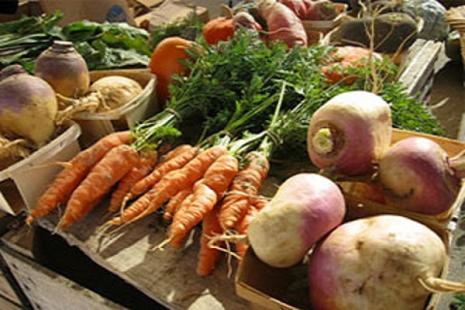On 9th April 2013 the United Nations Research Institute for Social Development (UNRISD) host a talk by José Luis Vivero, a prominent anti-hunger and social rights activist with extensive experience working in the politics of food security and food sovereignty in Latin America and Africa. The aim of the seminar as to discuss how different and competing paradigms on how we see food influence our global food system and what influence this has for hunger eradication.

On 9th April 2013 the United Nations Research Institute for Social Development (UNRISD) host a talk by José Luis Vivero, a prominent anti-hunger and social rights activist with extensive experience working in the politics of food security and food sovereignty in Latin America and Africa. The aim of the seminar as to discuss how different and competing paradigms on how we see food influence our global food system and what influence this has for hunger eradication.
The failures of the global food system are becoming irrefutable to most people who have given it even a cursory glance. While aggregate statistics appear to show that global hunger is in decline, Dr. Vivero points out that this is due to the changes in China and that when we focus on areas such as South East Asia and Africa, very little, if any progress is being made. But perhaps more importantly, the problem is that hunger and global food insecurity is a systemic problem.
This systemic problem is illustrated by the fact that 2.8 million people die of diseases related to being overweight and obese, as 2.3 million children die of hunger related diseases and many more are affected by poor nutrition and stunting. Where the food industry is the second biggest global industry (after oil), these problems cannot be put down to simple problems of supply vs. demand or distribution vs. availability.
In the UNRISD seminar, Dr. Vivero proposes a shift in paradigm, towards analysing the problem from a “food dimensions” framework. The problem with the business as usual approach that characterises conventional food aid provisions, famine relief and food security policy is that food is seen in a one-dimensional framework. Dr. Vivero re-frames food in a multidimensional approach, encompassing food as a Human Need; a Human right; Culture; a Commodity and a Commons.
Dr. Vivero is pioneering an approach to deconstruct food as a commodity – taking it out of the World Trade Organisation (WTO), stopping speculation, ending bio-piracy and the patenting of life-forms. Instead, his hypothesis is that by reframing food as a commons (i.e. a public good such as the air we breathe), we can support the Food sovereignty movement, a global mobilisation of peasants protesting against the current post-industrial food system, and that the production and consumption of food is a socio-cultural issue.
He argues that framing food as a commons can stop food speculation, and help to legislate the collective rights of producers, ending the controlling and grabbing of land, minimise copyrighted agriculture and help to combat the concentration of agro-food chains in the hands of the multinational agro-corporations. He proposes that food as a commons can help to build a tri-centric governance of food systems; based on a balance of socio-economic motivations, institutional and legal regimes and environmental ethics and food justice.
As was brought up in the discussion that followed the seminar, operationalising such a transition for radical change is challenging. Moreover, there is also the issue of how this targeted approach toward food and hunger be incorporated into a broader socio-economic development strategy. Also brought up in the discussion was how the possibility of government intervention being used to secure the right to food for wider food insecure populations, can be reconciled with the interests of small scale farmers. These are indeed important issues that need to be tackled head-on if we are to imagine a radical overhaul of the current food system.
Another point that was made, was a scepticism as to the power that peasant movements, such as La Via Campesina and the food sovereignty movement actually have in the face of the capitalist food system. A possible response to such a point would be that peasant movements do not have to be, and are not, alone in the collective voice that is calling to change our broken food system. Arguably, everyday consumers, particularly of the wealthier developed nations have enormous socio-political power. Harnessing the political mobilisation of consumers in unison with producers, animal herders and small scale famers all over the world through movements such as La Via Campecina, does not seem such a hopeless endeavour after all.
Using a paradigm that encompasses the multidimensionality of food can help us to understand the harmful systems that govern it and the livelihoods of the small scale agriculturalists who produce it. Importantly, by raising awareness and mobilising small scale producers and consumers alike, who is to say that a radical change is not possible in our lifetime?
Link to event details, presentation and podcast:
Jose Luis Vivero’s anti-hunger blog: http://hungerpolitics.wordpress.com/